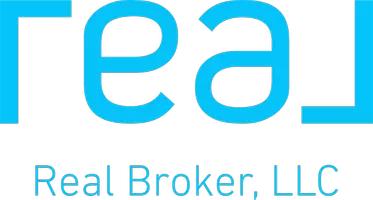Blog > How to Avoid Foreclosure and Protect Your Equity

Foreclosure is a daunting and stressful situation for any homeowner. It doesn’t just mean losing your home; it can have long-lasting effects on your credit score and financial future. But foreclosure is not the only option. There are strategies available that can help you avoid foreclosure while protecting the equity you’ve built in your home. In this comprehensive guide, we’ll explore what foreclosure is, the steps you can take to avoid it, and how to secure your financial well-being during challenging times.
1. Understanding Foreclosure
Before diving into solutions, it’s essential to understand what foreclosure is and how it works. Foreclosure is the legal process through which a lender tries to recover the balance of a loan from a borrower who has stopped making payments. The exact process varies from state to state, but there are typically three main steps:
- Notice of Default (NOD): If you miss a certain number of mortgage payments (usually three to six), the lender will issue a NOD, formally notifying you that you are in default on the loan.
- Notice of Sale: If the default isn’t resolved after the NOD is issued, the lender will file a notice of sale. This notice sets a date for the property to be sold at a foreclosure auction.
- Foreclosure Auction: At the auction, the home is sold to the highest bidder. If there are no bidders, the property reverts to the lender.
Understanding this timeline is critical because it highlights the urgency of acting quickly. Once a NOD is issued, the clock starts ticking, and your options become more limited as time passes.
2. Communicate with Your Lender
If you’re facing foreclosure, your first step should be to contact your lender. Contrary to popular belief, lenders don’t want to foreclose on homes. It’s an expensive and time-consuming process for them, and they are often willing to work with homeowners to find a solution.
Options to explore with your lender include:
- Loan Modification: This is when the lender agrees to modify the terms of your loan to make it more affordable. This could involve lowering the interest rate, extending the loan term, or rolling missed payments into the balance of the loan.
- Forbearance: A forbearance allows you to temporarily reduce or pause your mortgage payments. This can be helpful if you’re experiencing a temporary financial hardship, such as job loss or medical expenses.
- Repayment Plan: If you’ve missed several payments, a repayment plan can help you catch up over time. Instead of paying the full amount immediately, you agree to make slightly larger payments over a specific period.
In all cases, be proactive. Contact your lender as soon as you know you’re going to miss a payment. Waiting until they contact you can limit your options.
3. Selling Your Home Before Foreclosure
One of the most effective ways to avoid foreclosure and protect your equity is to sell your home. This option allows you to settle the mortgage debt, avoid long-term damage to your credit, and potentially walk away with some equity. If you have equity in your home, selling can help you cover any outstanding mortgage payments and other associated costs.
Why selling can be a good option:
- Preserve Your Credit: A foreclosure stays on your credit report for up to seven years and can make it challenging to get approved for new credit or loans. Selling your home before foreclosure helps you avoid this damage.
- Retain Equity: Selling your home allows you to protect the equity you've built over the years. Depending on the market, you may be able to walk away with enough money to start fresh.
- Control the Process: When you sell your home, you remain in control of the timeline and the terms, unlike with foreclosure, where the lender takes control.
To make the sale process as smooth as possible, consider working with a real estate agent who has experience with distressed properties. They can help you price your home competitively and market it effectively to ensure a quick sale.
4. Considering a Short Sale
If you owe more on your mortgage than your home is worth, a short sale might be the best option. In a short sale, the lender agrees to let you sell the home for less than the remaining mortgage balance. While it’s not ideal, it’s still a better option than foreclosure.
Things to keep in mind about short sales:
- Lender Approval: A short sale requires approval from your lender, and the process can be lengthy. Lenders may require proof that you are in financial hardship.
- Credit Impact: While a short sale does affect your credit score, the impact is generally less severe than a foreclosure. It can stay on your credit report for up to seven years, but the negative effect decreases over time.
- Tax Implications: In some cases, the forgiven debt from a short sale may be considered taxable income. However, there are programs and exemptions (like the Mortgage Forgiveness Debt Relief Act) that can protect you from paying taxes on this amount.
5. Leveraging Your Home’s Equity
If you’ve built up a significant amount of equity in your home, you have more options available to avoid foreclosure. Equity is the difference between the current market value of your home and the amount you still owe on your mortgage.
Ways to leverage your home’s equity:
- Home Equity Line of Credit (HELOC): This is a revolving line of credit that uses your home’s equity as collateral. You can borrow money as needed and pay it back over time, which can help you catch up on missed payments or cover other expenses.
- Home Equity Loan: Unlike a HELOC, a home equity loan provides you with a lump sum of money based on your home’s equity. This can be used to pay off debts or cover emergency expenses.
- Cash-Out Refinance: Refinancing your mortgage allows you to replace your current loan with a new one that has more favorable terms, such as a lower interest rate. With a cash-out refinance, you can also borrow against your equity to get cash upfront.
6. The Importance of Acting Quickly
One of the biggest mistakes homeowners make when facing foreclosure is waiting too long to take action. The longer you wait, the fewer options you’ll have available. Once foreclosure proceedings begin, it becomes much harder to negotiate with your lender or sell your home.
Key actions to take immediately:
- Contact your lender: Don’t ignore their calls or letters. The sooner you communicate, the more options you’ll have.
- Consider all options: Selling your home, refinancing, or negotiating with your lender are all viable solutions. Work with professionals who can guide you through the process.
- Stay organized: Keep track of all communications with your lender, housing counselors, and real estate professionals. This will help you stay on top of the situation and avoid any unnecessary delays.
Conclusion
Foreclosure doesn’t have to be the end of the road. By taking proactive steps, you can avoid foreclosure, protect your equity, and secure your financial future. Whether it’s negotiating with your lender, selling your home, or leveraging government assistance programs, there are multiple paths available to help you through this challenging time. If you’re facing foreclosure, don’t wait—take action today to explore your options.
Ready to Take the Next Step?
GET MORE INFORMATION

Ian Collins, MBA
Team Lead / Agent | CA DRE# 0202209201858943
Team Lead / Agent CA DRE# 0202209201858943

